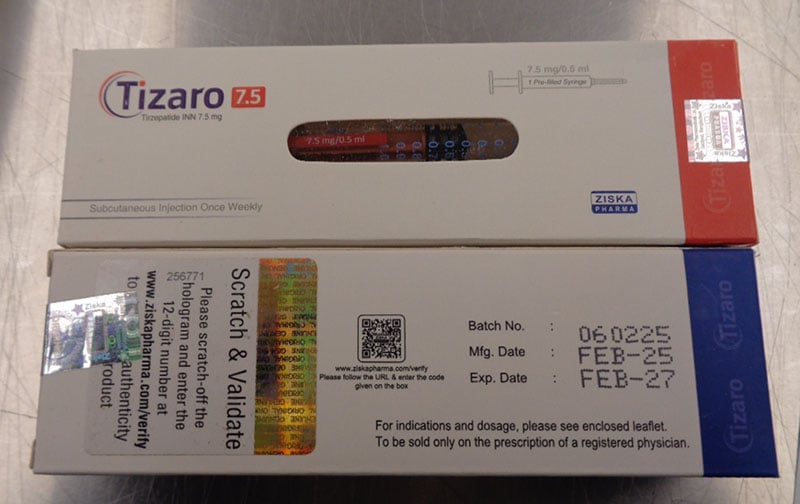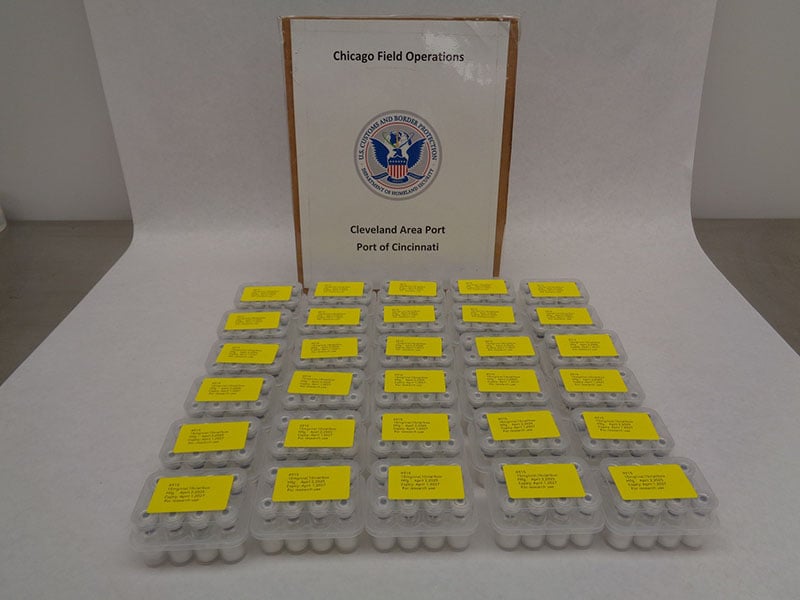During a week-long joint operation between U.S. Customs and Border Protection and U.S. Food and Drug Administration, CBP officers inspected hundreds of boxes containing possible counterfeit and unapproved medications at the Port of Cincinnati. A wide variety of unapproved FDA drugs were discovered during inspections including counterfeit injectables and pills.
The operation was a success with a total of 54,843 counterfeit products seized. Had all these items been legitimate, the combined value of all the products would have been over $3.53 million.

During the operation, CBP officers intercepted shipments containing counterfeit Ozempic, Semaglutide, Retatrutide, and Tirzepatide, injections in demand for positive results in weight loss. Ozempic is FDA-approved for the treatment of type 2 diabetes, however the injectable is not FDA-approved in the treatment of weight loss. CBP officers seized a total of 16,740 injectables of counterfeit pre-filled medicated pens.
Various other medications discovered were Botox, Juvéderm, dermal fillers, erectile dysfunction medication, contact lenses, and other FDA prohibited items. The pharmaceuticals originated in many different countries with the most coming from Hong Kong followed by China, Colombia and Korea. The seized shipments had final destinations to 40 of the 50 states including Washington D.C. Most shipments were heading to Texas, Florida. Georgia, Colorado, California and New York.
Purchasing regulated cosmetics, and pharmaceuticals online can potentially pose serious health risks to the consumer. Consumers may believe the products are genuine, but there is no guarantee the products purchased are under safe manufacturing conditions unless they are purchased from a legitimate source.

“CBP officers in Cincinnati work tirelessly to combat the importation of illegal shipments of beauty products and medical injectables,” said LaFonda D. Sutton-Burke, director CBP’s field operations in Chicago. “These drugs can be expensive and hard to acquire in many locations, but CBP urges consumers to only purchase these medications from reputable sources. Cheap prices are not always the safest, especially when it comes to your health and wellbeing.”
CBP works closely with the FDA to protect the nation’s drug supply, enforcing laws for partner agencies including FDA. Its operations target and inspect questionable shipments being imported into the U.S. and completes enforcements action when necessary.
The health risks of illicit products is concerning for multiple factors, one being the unknown ingredients. There is no guarantee the ingredients are not dangerous when purchasing from unapproved sources online.
CBP recommends consumers purchase pharmaceuticals from reputable sources, and ensure they are administered by properly trained and licensed medical professionals.
For more information, the FDA provides guidance on how human drugs can be legitimately imported into the United States.
U.S. Customs and Border Protection

















